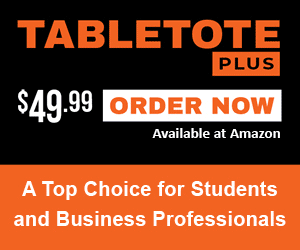Careers, Your Career
Feeding Your Entrepreneurial Appetite: 7 Tips to Start a Cafe as a Graduate
Dmytro Spilka

Whether you’re graduating from an entrepreneurial, business management, or hospitality degree, opening a cafe in an area with high market potential can make for the perfect first steps in running your own business.
There are many options available if you’re planning to graduate into starting a cafe business. You could build your brand from the ground up, or open a franchise with the help of an established industry player.
For graduates, choosing to open a cafe can offer plenty of opportunities to get to grips with your degree in terms of using your marketing, budgeting, customer experience, and retention skills to great effect.
There are also many aspects of cafe ownership that might be more challenging to get to grips with. Let’s take a deeper look at seven tips to start a cafe as a graduate in order to make the best possible start in running a successful business:
Nothing Beats Hands-On Experience
When establishing your own cafe, a great way of building your competencies is by combining your educational background with some hands-on experience in the roles you’ll require for your staff.
Taking on a part-time or temporary position as a barista can help you gain valuable first-hand experience for what you and your staff will be going through when working in your cafe. This can help you to build more intangible skills within your business and add your experience to problem-solving issues and situations that could be out of your staff’s control.
Crucially, when it comes to hiring, you’ll also be in a better position to understand what to look for in your prospective employees.
Never Go In Blind
Recent years have shown that the hospitality industry is as unpredictable as ever. The impact of the pandemic followed by a prolonged period of high inflation and interest rates brought the volume of challenges that only the most adaptable of businesses could survive.
When opening a cafe, it’s essential that you take your market research seriously to determine whether you’ll have a consistent flow of customers visiting your business.
How can you conduct market research? Focus groups are always a useful idea, but it’s possible to compile lots of useful information for free by getting out on the streets of your prospective location and surveying residents.
Asking questions about how often respondents go out for food, the type of cafes and restaurants they’re most likely to visit, their ideal dining budget, and the type of restaurants that are missing in the area can all provide excellent new perspectives from those who matter most: Your target audience.
Costing Up Your Cafe
As a graduate, you’re already likely to be familiar with the costs involved in startup up as business if it’s linked to your degree. However, setting up a hospitality business can be complex, so it’s certainly worth making sure you have all your bases covered.
Premises costs will revolve around your initial deposit and rent, you’ll also need to ensure that your fitting and decorating expenses are taken into account to get your cafe ready for the big opening day.
Other overheads like utilities, tools and equipment costs, inventory levels, and marketing campaign costs should all be taken into consideration within your business plan.
This hefty outlay can seem daunting but can pay dividends when done right with higher probabilities of retaining customers over the long-term.
Managing Payments
Now your cafe is ready to welcome customers, how are you going to accept payments? In hospitality, flexibility is becoming increasingly important in matching customer expectations.
Customers will be seeking to pay in a number of different ways through mobile or digital wallets, or even open banking platforms on their terms. This means that you should not only utilize a point-of-sale (POS) system that’s portable enough for convenient billing at tables, but your must also seek to embrace the many ways that people will want to pay to prevent missing out on sales.
Sidewalk License?
Depending on your jurisdiction, you may be liable to pay sidewalk licence if you plan to have outdoor seating available at your cafe. This requires a small premium to open your seats out onto the street, and it can be a great means of expanding your capacity and the options available to customers as a result.
Hiring Your Team
Whether your modules focus on the hiring and onboarding of staff or not, this will be a major consideration depending on the cafe you want to open and the type of atmosphere you’re intent on creating inside.
While hiring experienced, qualified baristas is one matter, identifying the right intangible qualities that turns a suitable candidate into a great prospect is another matter entirely.
If you’re seeking to uphold a warm, welcoming, even family atmosphere within your cafe, seek out candidates who are capable, resourceful, and personable enough to make your visitors feel welcome and at home.
The strongest intangible qualities can vary depending on where you are. For instance, some city locations or busy working districts could call for more fast, affirmative staff who are capable of efficiently acting on orders in a friendly but professional manner.
Getting the Pricing Right
Another key consideration revolves around the type of pricing structure that complements your business.
Getting pricing right is a major challenge for cafes and there’s rarely a one-size-fits-all approach. Some locations will be more focused on delivering a premium quality service that emphasizes luxury and a higher pricing structure, while others will seek to undercut competitors to ensure a steady flow of customers are retained long into the future.
Pricing structures should complement your business plan. Whether you want to be a budget-friendly, mid-range, or luxury cafe will depend on factors like your location and target market, too.
Building a Sustainable Business Model
Opening a cafe can be a challenge for just about any entrepreneur, from graduates to the most experienced of business owners.
The recipe for success revolves around market research. This will help you to understand the personality that your business will take, and who you’re marketing towards. By blending your degree with first-hand insights, you can build a sustainable hospitality business that capitalizes on the best local opportunities and market gaps.
With sufficient future-proofing and research under your belt, you’ll be well-positioned to outpace your rivals and create a cafe that can thrive long into the future.
SEE ALSO: Preparing for a Career in Social Work: Education Pathways and Specializations


















